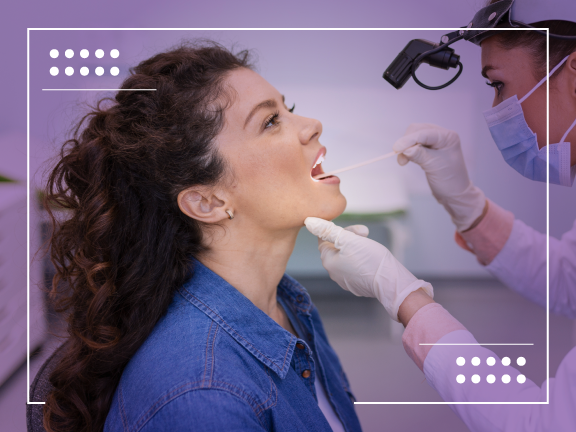Before prostate cancer treatment is determined by a physician, various tests are performed once cancer is suspected. If prostate cancer is suspected during a physical exam, the physician will perform the following tests to confirm the diagnosis:
- Digital rectal exam (DRE) is performed to see if one or both sides of the prostate are affected.
- Prostate-specific antigen (PSA) is a blood test that measures levels of proteins made by the prostate gland and is used to screen patients with and without symptoms.
- A biopsy in which a small piece of the prostate is removed and viewed using imaging tests to determine whether cancer cells are present.
Unlike many other cancer types, most cases of prostate cancer are diagnosed in early stages, giving patients several options for treatment. The stage of prostate cancer is determined by a physician considering the following:
- Overall health status
- Metastasis to bones and other major organs
- Current symptoms
- PSA level
- Health history and other medical conditions
What are the Standard Prostate Cancer Treatments?
Watchful waiting: Monitoring a patient’s overall health without providing any direct treatment. This option is typically used in slow growing diseases, however, if symptoms start or change, physicians may begin treatment.
Active surveillance: To avoid side effects from intense treatment plans, physicians may wait to see if the patient’s overall condition is getting worse. Regular exams and tests are scheduled to check on the disease and condition of the patient.
Pelvic Lymphadenectomy: Surgical removal of lymph nodes in the pelvis.
Radical prostatectomy: Surgical removal of the prostate. Physicians try to save the bladder from being damaged in this procedure.
External radiation therapy: Radiation from high energy rays from outside of the body pointed at the cancer.
Internal radiation therapy: Sealed radioactive material is injected near the tumor and begins killing the cancer cells.
Hormone therapy: Synthetic hormones are added to replace the body’s natural supply, which cause the cancer to grow.
Advanced Prostate Cancer Clinical Trials
Prostate Cancer Treatment by Stage
- Stage I Prostate Cancer
- Watchful waiting.
- Active surveillance, but if the cancer begins to grow, hormone therapy may be considered.
- For healthy patients with the tumor only in the prostate gland, surgery may be considered:
- Radical prostatectomy, patients also usually receive a lymphadenectomy
- Radiation therapy may be given after surgery
- External radiation therapy, might be followed by hormone therapy
- Clinical Trials
- High-intensity–focused ultrasound therapy
- Photodynamic therapy
- Cryosurgery, a cryoprobe is used to freeze and destroy abnormal tissue
- Stage II Prostate Cancer
- Watchful waiting or active surveillance
- Radical prostatectomy
- External radiation therapy, which may be followed up by hormone therapy
- Internal radiation therapy with radioactive seeds
- Clinical Trials
- Cryosurgery
- High-intensity–focused ultrasound therapy
- Proton beam radiation therapy
- Photodynamic therapy
- Stage III Prostate Cancer
- External radiation therapy, followed by hormone therapy
- Hormone therapy, which may be followed by radiation therapy
- Radical prostatectomy, followed by radiation therapy
- Watchful waiting
- Active surveillance, but if the cancer begins to grow, hormone therapy may be considered.
- Clinical Trials
- New types of radiation therapy
- Cryosurgery
- Stage IV Prostate Cancer
- Hormone therapy which may be combined with chemotherapy
- Bisphosphonate therapy
- External radiation therapy, which may be followed by hormone therapy
- Alpha emitter radiation therapy
- Hormone therapy (if the cancer begins to grow)
- Immunotherapy
- Clinical Trial
- Radical prostatectomy with orchiectomy (Removal of one or both testicles)
Prostate Cancer Treatment & Clinical Trials
Clinical trials provide alternative treatment options for cancer patients. Some aim to test new drugs, reduce side effects, improve current treatment methods, and more. For some patients, clinical trials may be their best option. Once clinical trials complete all four phases, the FDA decides whether to approve the treatment, which may eventually become a standard treatment option.
Below is a list of treatments currently being studied in clinical trials:
Cryosurgery: A cryoprobe is used to freeze and destroy abnormal tissue within the prostate.
High-intensity–focused ultrasound therapy: In this procedure, sound waves are directed at the area of cancer. The sound waves produce heat that kills the cancer cells.
Photodynamic therapy: For tumors just below the surface of the skin, a drug can be injected and activated when exposed to light, killing the nearby cancer cells.
Bisphosphonate therapy: This is used to reduce bone disease once the cancer cells have metastasized to the bone. Clodronate or zoledronate are used to slow the growth of cancer cells within the bone.
Alpha emitter radiation therapy: For patients who have had prostate cancer metastasize to the bone. Radium-223 is injected, which then finds and kills cancer cells in areas of the bone













